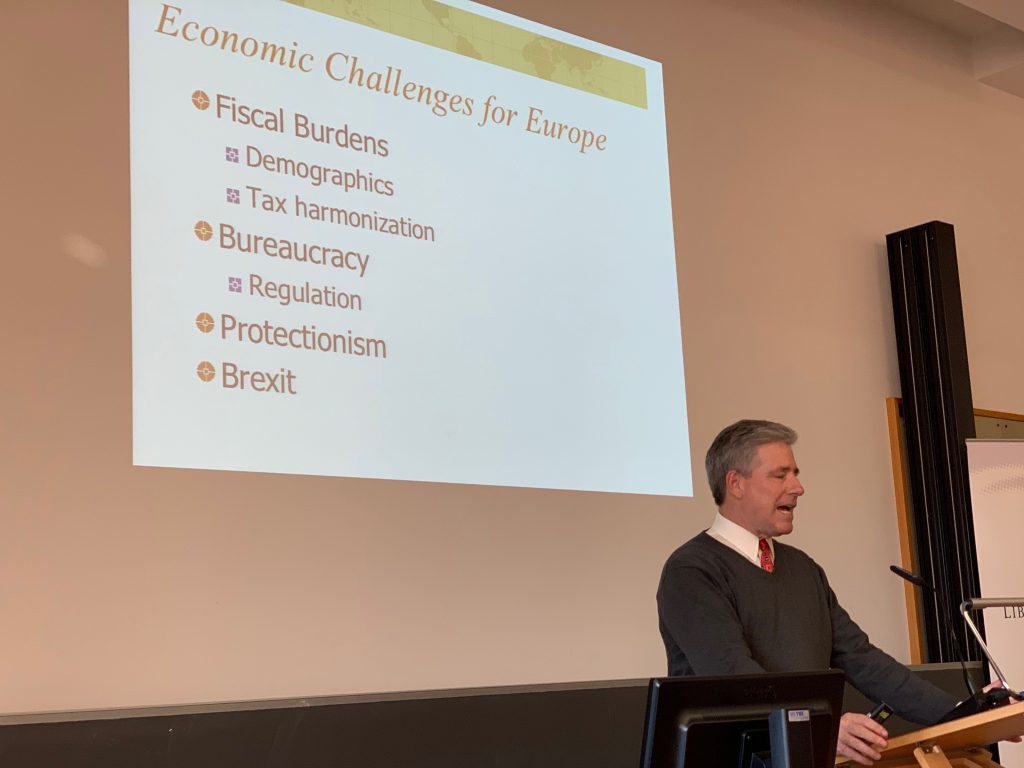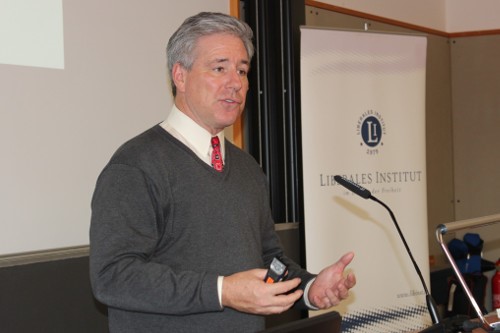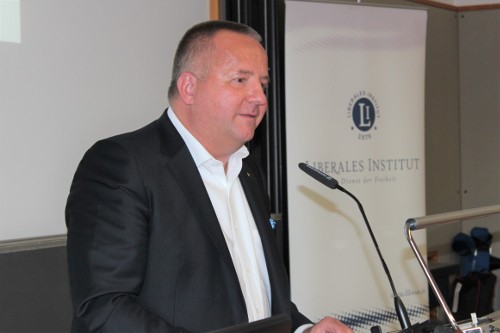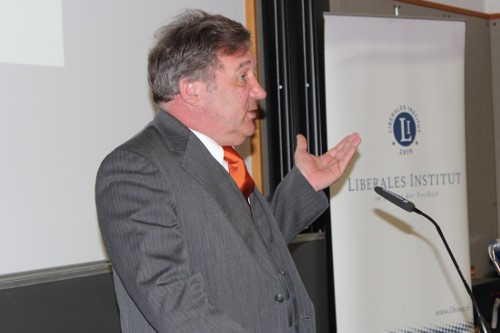
Report: Free Market Road Show in Zurich 2019
30 Years after the Fall of Berlin Wall: What will the Future bring?
The Free Market Road Show in Zurich focused on the future of freedom. In 2019 we celebrate the 30th anniversary of the Fall of the Berlin Wall. However, there are still many challenges left for freedom. A soft etatism is spreading, not only in financial markets, but also in the welfare state. The same problems are caused by the tax state. In some countries, we have a “Renaissance of Socialism”, because politicians like Bernie Sanders and Jeremy Corbyn gain popularity, as it happened in the US and the UK. On the one hand, criticism on globalization is more and more socially acceptable; on the other hand, international government cartels are supposed to solve the problems of the world.
Olivier Kessler reminded the audience of the results of the free market. He quoted the Index for Economic Freedom, saying that the countries ranging in the top quarter with the greatest economic freedom earn eight times more than the last quarter with the smallest economic freedom. Even the least wealthy earn eight times more in a liberal country than people in a socialist country do. Moreover, statistic has it that people in liberal countries live longer by 20 years. However, the majority does not acknowledge these successes of capitalism. According to the Free Market Mentality Index, the mood turns more and more against the free markets and this is more pronounced than 30 years ago, when the wall fell. This development proves that Francis Fukuyama had been wrong; who said in “End of History” Liberalism would finally win after the fall of the Sowjet Union. On the contrary, freedom needs constant engagement.
Dan Mitchell started with the first keynote, focusing on the increasing dependence of people in western countries on retirement plans and health service provided by the state. He enumerates problems like high taxes, increasing regulation, new tendencies towards protectionism, and a very pressing problem: the financing of the welfare state in combination with western demography. The positive development of an increasing lifespan looks like a threat to the working population, because of financing gaps of inflexible insurances. These gaps have to be filled by taxes.
However, there are alternatives. Singapur and Hongkong for example experienced similar demographic developments: low birthrate and high lifespan. In contrast to Western industrialized countries, they did not have to overcome financial pressure, because of individual saving instead of welfare reallocation. This leads to several positive effects: pension plans and healthcare are detached from variable demography developments and, thus, more reliable. Such a system of capitalized precaution does not affect economic development, because savings are not added to the consumption of others, as it is the case in welfare state reallocation. These savings can be invested, and that leads to a higher standard of living.

The second speaker was Claudio Cocca. He focused on throwbacks, global financial crises, and political identity crises on both sides of the Atlantic. All these developments show that we have not reached the global prosperity as generally propagated. In the last decades, extreme poverty has decreased by half, which might be a sign of fundamental improvements, like entrepreneurial and technological progress. It is difficult to tell how much state the world needs. Without intervention, numerous systemic banks would have collapsed and caused disastrous consequences. In return, too much intervention and protectionism leads to ineffective entrepreneurship and indirectly to new crises, due to false incentives as “moral hazard”. The complexity of economic, politic, and structural questions supports extremist simplifications from the far left and the far right. It is necessary to find the right measure and to separate economy and politics.

Richard Zundritsch stressed the importance of the Austrian School of Economics, which is largely ignored in Austria. A small, but groundbreaking book by his grand uncle Friedrich von Hayek, “Denationalization of Money”, offers substantial impulses for the restructuring of the global economy. The casual monetary policy created a situation, in which Central Banks could present themselves as saviors. This mixed economy currently leads to nostalgia in Eastern Europe and increasing government control in Western Europe. At the same time, we cannot clearly segment the world as we used to, because international interdependences reached economy and politics. Regulation grows globally, and it is hardly clear which rules apply where. Additionally, the US and EU try to implement extraterritorial rules outside their respective territories. It does not help to be “more catholic than the Pope”, when it comes to the implementation of international standards. Anticipatory obedience to international organizations is hardly helpful for the global competitiveness of the economy. Many problems could be solved much easier on a local level, creating competition there.

